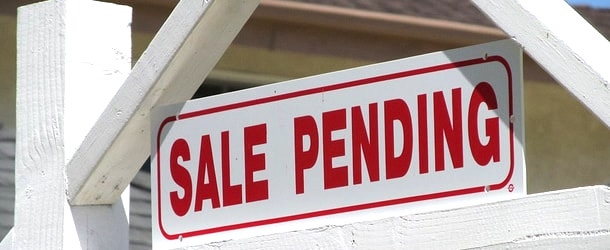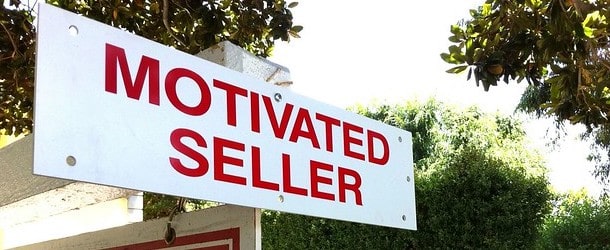
The last two weeks have been crazy in the mortgage world.
In early March, the industry celebrated as mortgage rates hit record lows. Per Freddie Mac’s weekly survey, the 30-year fixed fell to 3.29%, its lowest point since tracking began in 1971.
It narrowly beat out the record low of 3.31% set in late 2012, shortly after the Fed had launched QE3 to lower interest rates.
As a result, mortgage lenders got absolutely inundated with home loan applications, to the point where there were jokes about waiting lists. And perhaps even real anecdotes of lenders turning away customers.
Someone also mentioned that if you didn’t make at least $1 million this year as a loan officer, you were doing it wrong.
Just a short week later, mortgage lenders repriced their rate sheets for the worse in response to a surge of supply in mortgage-backed securities (MBS).
Simply put, the market got flooded and investors weren’t interested in buying ultra-cheap mortgage debt.
That led banks and lenders to reverse course and raise their rates, which tempered demand somewhat until the Fed showed up on Sunday.
Knowing full well what had happened, the Federal Reserve launched QE4, which is another round of purchases of treasuries and agency MBS, intended to lower mortgage rates.
Now there’s the question of whether it’s actually working.
What Rates Are Mortgage Lenders Offering Today?
| Lender | Mortgage Rate | APR | Discount Points |
| Bank of America | 3.375% | 3.552% | 0.606 |
| BB&T | 3% | 3.198% | 1.125 |
| Better | 3.375% | 3.408% | none |
| Chase | 3.50% | 3.59% | *1.00 |
| Citi | 4% | 4.189% | 1.00 |
| Citizens Bank | 3.625% | 3.677% | 0.125 |
| Flagstar Bank | 3.198% | 3.321% | 1.00 |
| Guaranteed Rate | 3.25% | 3.363% | 1.00 |
| Navy Federal | 3.65% | 3.810% | 1.25 |
| Quicken Loans | 3.875% | 4.141% | 2.00 |
| TIAA Bank | 3.25% | 3.404% | 0.982 |
| USAA | 3.625% | 3.713% | 0.125 |
| U.S. Bank | 3.63% | 3.70% | 0.862 |
| Wells Fargo | 3.75% | 3.865% | 0.375 |
I did a quick search around the web to see what mortgage rates were like with banks and lenders that openly advertise them on their websites. Take a look above at what I found.
Note the discount points required for the advertised rates. Chase says their 1 point is approximate.
These 30-year fixed mortgage rates are for conventional, conforming home loans, such as those backed by Fannie Mae and Freddie Mac. Not FHA/VA or jumbo.
Some disclaimers here. Each bank/lender makes its own assumptions when they advertise their mortgage rates.
For example, they come up with a sample loan scenario, similar to how a car dealer says we have one car at this price that has certain features.
So you might be required to have a FICO score of 740+, an LTV of 80% or less, on a single-family residence with a loan amount at or below the true conforming loan limit.
If you don’t, rates may vary, and even if you do, your rate may be different by the time you call them depending on what’s transpired. Especially in today’s climate.
These rates may also come with different lock periods, such as 30 days versus 60 days, or even as long as 90 days.
Lenders Are Dealing with the Refinance Boom Differently
- Mortgage rates always vary from lender to lender
- This may be more pronounced at the moment given the economic turmoil related to the coronavirus
- Banks and lenders who are stretched thin may not offer the lowest rates
- Those with greater capacity to process applications may reduce their rates
The takeaway right now is that there’s a lot of interest rate variation between lenders because of the uncertain climate.
Couple that with the mortgage refinance boom currently taking place and you’ve got rates all over the place, which are also subject to change at a moment’s notice.
One thing that is for sure is you’re not getting a 0% mortgage rate, at least not yet.
As noted, there’s been a lot of stuff going on recently that directly involves mortgage rates, so it’s moving target.
Banks and lenders are keenly aware of this and as such they may be reticent to lower their rates too much.
Some seem to be propping rates up, perhaps because they’re too busy and can’t handle the extra capacity.
Others who are better equipped to handle the surge in new business may be pricing their mortgages lower as a result.
Despite mortgage rates being relatively close to all-time lows, it’s a weird time to get a mortgage given the coronavirus, the daily swings in the market, and so on.
There’s also the looming question of what will happen to the housing market in light of this pandemic.
Will home prices go down? Will borrowers start to default if they lose their jobs? Are lenders making higher-risk loans than they realize?
Lots of unknowns, so tread cautiously, and if you like what you see, make sure you mortgage rate is locked!



